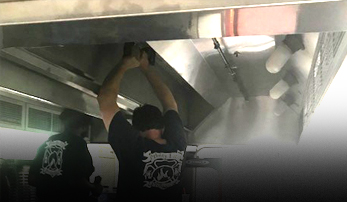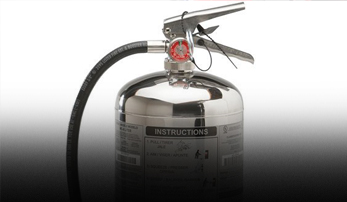Global Attention Focuses on Escalating Crisis & Breaking News Headlines Unfold
- Global Attention Focuses on Escalating Crisis & Breaking News Headlines Unfold
- The Rise of Real-Time Information Delivery
- The Impact of Social Media on News Consumption
- Challenges of Verification on Social Media
- The Role of Citizen Journalism
- The Evolving Role of Traditional News Organizations
- Strategies for Navigating the Information Age
Global Attention Focuses on Escalating Crisis & Breaking News Headlines Unfold
In an increasingly interconnected world, the speed at which information travels is unprecedented. The constant flow of updates, reports, and developing situations requires a reliable and accessible source for breaking news headlines. Modern technology, particularly the internet and social media, has dramatically altered how we consume current events, demanding instant updates and diverse perspectives. Staying informed about global events is no longer a passive activity but an active pursuit, necessitating careful evaluation of sources and a discerning approach to information gathering. This article dives into the aspects of the urgent news cycle and the shape of its delivery.
The Rise of Real-Time Information Delivery
The shift from traditional media – newspapers, television, and radio – to digital platforms has redefined the concept of immediacy in reporting. Previously, news was delivered on a scheduled basis, often with a significant time delay between the event and its dissemination. Today, news organizations, citizen journalists, and social media users contribute to a continuous stream of updates, allowing information to spread globally within seconds, or even fractions of a second. This real-time nature of information delivery offers significant benefits, enabling swift responses to emergencies, informing public opinion quickly, and fostering greater transparency.
However, this speed also presents challenges. Verification becomes paramount, as unconfirmed reports and misinformation can easily gain traction. The demand for instant updates often overshadows the need for thorough investigation and fact-checking. Consequently, the public must exercise critical thinking skills and rely on trustworthy sources to navigate the complexities of the modern information landscape.
The proliferation of mobile devices has further amplified this trend, granting individuals access to breaking information anywhere, anytime. Dedicated news apps, push notifications, and social media feeds contribute to a constant bombardment of updates, making it crucial to curate information effectively and avoid overwhelming oneself with excessive news consumption.
| Scheduled updates | Real-time updates |
| Limited sources | Diverse sources |
| Slower dissemination | Rapid dissemination |
| Gatekeepers control content | Distributed content creation |
The Impact of Social Media on News Consumption
Social media platforms have become integral to how individuals discover and share news. Platforms like Twitter, Facebook, and Instagram serve as primary news sources for a substantial portion of the population, particularly among younger demographics. The immediacy and accessibility of social media make it an appealing alternative to traditional news outlets. However, this reliance on social media also carries inherent risks. Algorithms prioritize engagement over accuracy, potentially creating filter bubbles and echo chambers that reinforce existing beliefs.
The spread of misinformation and “fake news” is a significant concern on social media. The ease with which false or misleading information can be created and disseminated poses a serious threat to public trust and informed decision-making. News organizations and fact-checking organizations are actively working to combat the spread of misinformation, but they face an ongoing challenge. The virality of shared content jumps, and can be hard to track down.
Another challenge is the blurred line between news and opinion on social media. Individuals often share their personal interpretations of events alongside news articles, potentially distorting the factual basis of the information being consumed. Users need to be able to distinguish between objective reporting and subjective commentary.
Challenges of Verification on Social Media
The speed and scale of information dissemination on social media make verification a complex and challenging endeavor. Rapidly changing events, a lack of editorial oversight, and the prevalence of anonymous accounts contribute to the difficulty of confirming the authenticity of information. Fact-checking organizations rely on a combination of techniques, including reverse image searches, source analysis, and cross-referencing with reliable news outlets, to identify and debunk misinformation. The ever-present challenge is to keep pace with the constant stream of new content. The public needs to develop “media literacy” to discern high quality content from biased and erroneous posts.
The rise of deepfakes – artificially generated videos that convincingly depict events that never occurred – poses an even greater threat to the integrity of visual information. Detecting deepfakes requires sophisticated technological tools and expert analysis. The evolving sophistication of deepfake technology demands continuous innovation in detection methods.
The Role of Citizen Journalism
Citizen journalism, where individuals directly report news events, has become increasingly prominent, particularly in situations where traditional media access is limited. This form of journalism can provide valuable on-the-ground perspectives and cover events that might otherwise go unreported. However, citizen journalists often lack the training and resources of professional journalists, potentially leading to inaccuracies or biases. It’s crucial to understand the limitations of citizen journalism and consider the source’s credibility.
The Evolving Role of Traditional News Organizations
Faced with the challenges posed by digital platforms and social media, traditional news organizations are adapting their strategies to remain relevant and maintain public trust. This includes investing in digital platforms, developing innovative storytelling formats, and prioritizing fact-checking and accountability. Many organizations are also adopting subscription-based models to diversify revenue streams and reduce reliance on advertising revenue. These attempts at reinvention are critical to the continued delivery of quality journalism.
The emphasis on investigative journalism and in-depth reporting remains a key differentiator for traditional news organizations. While social media excels at delivering breaking information, traditional outlets provide the context, analysis, and background necessary for a comprehensive understanding of complex issues. The ability to conduct thorough investigations and hold power accountable remains a vital function in a democratic society.
Collaboration between news organizations is also becoming increasingly common. Sharing resources, pooling expertise, and conducting joint investigations can enhance the quality and scope of reporting. Cross-border reporting focuses and collaborative fact-checking initiatives, strengthens news coverage and allow for more thoroughly verified and informative reporting.
- Enhanced focus on fact-checking
- Investment in digital distribution
- Development of new storytelling methods
- Adoption of subscription models
Strategies for Navigating the Information Age
In an era of information overload, developing strategies for effective information consumption is essential. Prioritize reliable sources, read beyond headlines, and diversify media consumption. Cross-reference information from multiple sources to verify accuracy and identify potential biases. Be cautious of sensationalized or emotionally charged content, as these are often indicators of misinformation. Always question the source, and be aware of potential agendas or conflicts of interest.
Actively seek out diverse perspectives and challenge your own assumptions. Exposure to different viewpoints can broaden your understanding of complex issues and help you avoid falling prey to echo chambers. Support journalism by subscribing to trusted news outlets and Fact check claims before sharing information online.
Media Literacy is something to be practiced constantly. Developing critical thinking skills and being able to evaluate information effectively are essential tools for navigating the complexities of the modern information landscape and cultivating well-founded, researched opionions.
- Prioritize reliable sources.
- Read beyond headlines.
- Diversify media consumption.
- Fact-check before sharing.
The ability to discern fact from fiction, to understand the context of events, and to engage in informed debate are all crucial for navigating the complexities of the 21st century. A critical and discerning approach to information is more important than ever. Navigating the ever-changing informational terrain requires skill and awareness and actively engaging in the pursuit of truth.









Recent Comments